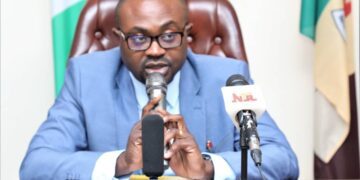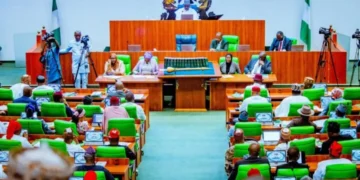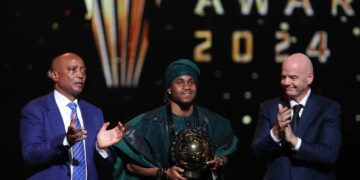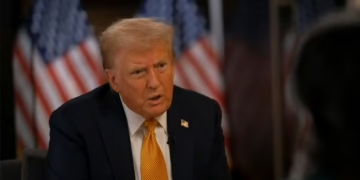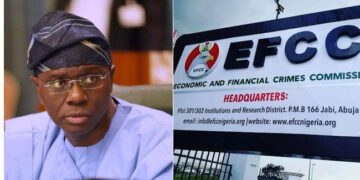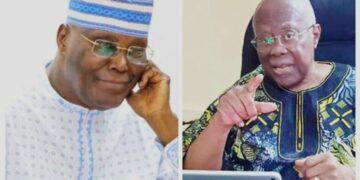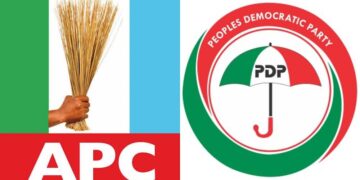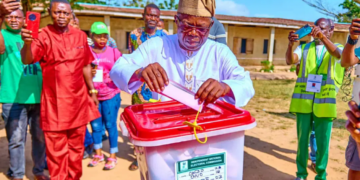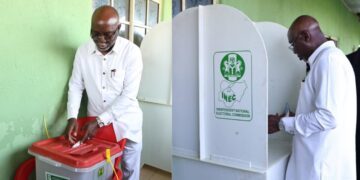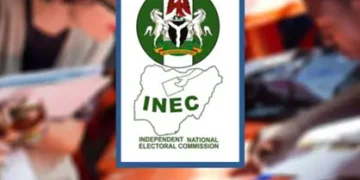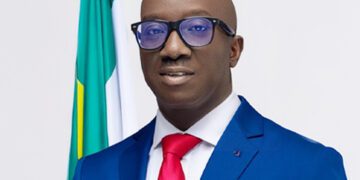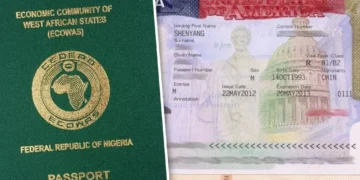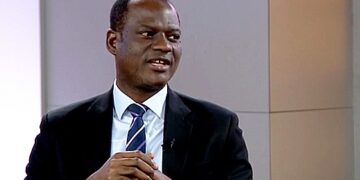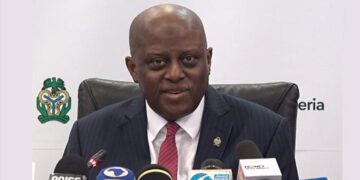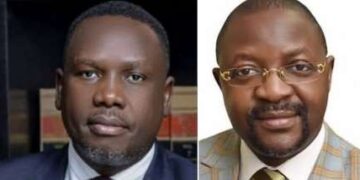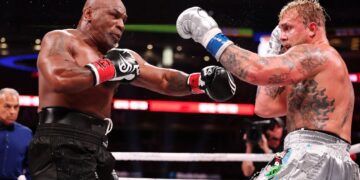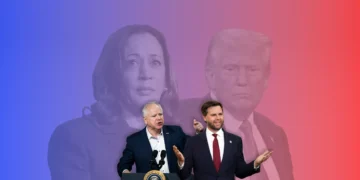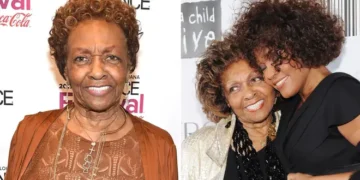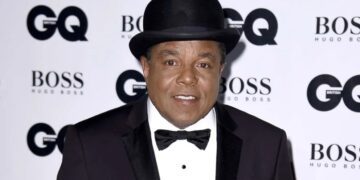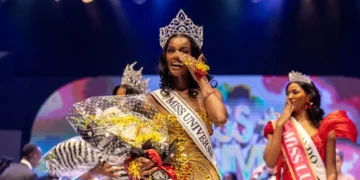By Yushau A. Shuaib
After the Independent National Electoral Commission (INEC) announced the former governor of Lagos State and National Leader of the All-Progressives Congress (APC), Asiwaju Ahmed Bola Tinubu as the Nigerian president-elect, ethnic tension and rivalry ensued between supporters of the presidential candidates.
This anxiety has been more palpable and evident in the home state of Tinubu, where his party lost the presidential election to the candidate of the Labour Party (LP), Mr Peter Obi, who is an Igbo from Anambra State.
The aftermath of the election has triggered the latent ethnic rivalries between the Yorubas largely aborigines or relatives to natives of the space and their Igbos neighbours who are mostly from the South-East, in what could be considered a supremacy tussle over the political control of Lagos State.
In this fairly volatile situation, many of the Yorubas appear to want the incumbent governor, Mr Babajide Sanwo-Olu to be reelected as governor of the State, while a seeming majority of the Igbos are eager to replace him with the candidate of the Labour Party in Lagos, Gbadebo Rhodes-Vivour, whose mother and wife are Igbos, despite his father being Yoruba.
It was in the thick of these ethnic and political tensions that the Chairman of Heirs Holdings, Tony Elumelu released a video of a visit to his house by the President-Elect, Asiwaju Tinubu in Lagos.
In an Instagram post through which this video has been disseminated, Elumelu writes: Last (Tuesday) night, I was honoured to receive the Nigerian President-elect at my home. We discussed ways in which the incoming administration must empower and support our immensely talented Nigerian youth. We have so much young potential to unleash.”
The business mogul, who is also the Chairman of United Bank for Africa (UBA) and the Transcorp Group, is known for flaunting his celebrity status with powerful connections. Elumelu has created a niche for himself and a strong social media presence, through which he exhibits good-natured humour and sartorial sophistication to his teeming trans-generational followers.
With his pan-African Tony Elumelu Foundation, the banker operates a business model he describes as Africapitalism, which is anchored on building a critical mass of young entrepreneurs to promote social and economic wealth, while also developing the communities in which businesses operate. Importantly, it is hinged on a humanitarian and philanthropic approach in which the general welfare is prioritised, as profits are sought and made towards doing good to humanity.
Therefore, the release of the video at a time that ethnocentric acrimonies have been brewing among two major ethnic nationalities in the country, is from all indications a deliberate communication plot.
Rather than considering the video released from an ambush marketing perspective, it is more of a publicity stunt that has elements of public relations (PR) messaging about the mutual relationship between entrepreneurs in business and politicians in government.
The relationship between the people in business and those governments can be understood through a classic distinction between the politics of support and the politics of power. While the politics of support is concerned with rallying to secure an electoral majority that leads to winning and which can be funded by people in business, the politics of power relates to implementing programmes that can ultimately benefit the people in business.
The video is very clear and considerate of the current mood in the nation, about the aftermath of the presidential election. It starts with Elumelu welcoming Tinubu to his home and referring to him as: This man with 10 lives. The Last man standing and strong man. Tinubu quickly and jokingly replies by saying: I am still standing.
The banker then turns to his left, where Seyi, Tinubus son, is and jokes that that the younger fellow is wearing the same kind of dress as his father. He then adds: Seyi you must be very proud of your father as he is proud of you. You are a good man, Seyi.
While exchanging pleasantries in the sitting room, Elumelu introduces Ifeyinwa Ugochukwu to Tinubu: This is the CEO of Tony Elumelu Foundation. She is in charge of the Foundation. So, if you need a young female Minister to come and change the women focus, I can loan her to you.
Critics who attack Elumelu for hosting the President-Elect fail to realise that Elumelu is not an Igbo from the South-East but one from the South-South state of Delta. An average Delta Igbo is likely to be found and excelling in the public service, academia or in the business world, rather than in partisan politics. The likes of Mrs Ngozi Okonjo-Iweala, Jim Ovia, Louis Edozie, and Godwin Emefiele, among others, from Delta State would rather mind their businesses than engage in partisan politics, although as in most situations, there will always be a few exceptions.
As mentioned earlier, it is not difficult to see that the video is deliberate and designed to achieve some strategic purpose on the delicate relationship between politics and business. Rather than an ambush marketing communication tool, whereby a promoter “capitalises” on an event to position for maximum exposure, while gaining advantage over his or her competitors, the video is essentially a publicity stunt designed to attract the public’s attention to the salient message of the sponsor or promoter.
The video deflects the attention of citizens from the nascent ethnic acrimony in the country and reinforces the fact that serious business people and politicians are not concerned about ethnic chauvinism and religious bigotry. Profiting making and service to humanity are their major priorities.
The video may possibly reawaken warring parties to the fact that after the election, life must go on, and we might as well not destroy relationships necessary for our progress due to surges of emotional connection with identity, as this past presidential election seems to have provoked in many.
More importantly, we all need to focus more on establishing and sustaining relationships built on trust, confidence and harmony towards a better, peaceful and prosperous society.
Meanwhile, some of the takeaways from the video is the fact that Tinubu is truly a Lagos City Boy who is simple, connected to his various constituencies and pragmatic, as evident in his paying a personal visit to worthy allies, despite what some might think are the sectional sentiments or ethnic and religious backgrounds of his host.
It also signifies Tinubus inclination to partner with those who can add concrete values towards his lofty aspiration of youth empowerment, considering the records of the Elumelu Foundation in this regard. It buttresses the fact that Tinubus allies are across Nigeria and in every sector, as major players who have supported his campaign, both morally and financially.
The Tinubu-Elumelu video has succeeded in its publicity endeavour by staging a newsworthy event that has attracted public attention. By staging the event in his house, the promoter (Elumelu) has also successfully exercised firm control over what the media could report.
In a nutshell, as a PR practitioner, I can say that Elumelus video has curated the major elements of effective publicity exploits, including having great news value, coupled with video and sound bite opportunities choreographed primarily for media exposure. In addition, it has gained prominence, and human interest to embody the features of effective public relations, which include reputation management, media (control) management and possibly crisis management, in the very subtle way it explores the soft power of relationships to de-fuse ongoing political situations.
I can see Tinubu hitting the ground running after May 29.
Yushau A. Shuaib is the author of Award-Winning Crisis Communication Strategies and An Encounter with the Spymaster www.YAShuaib.com

















